UP Man Helps Restore Dal Lake’s Beauty by Creating Organic Fertiliser Using Weeds
What may have been a casual vacation to Kashmir with his wife to celebrate their first wedding anniversary in 2013 turned into a vision for Maninder Singh.
Surrounded by the majestic mountains of Kashmir, Dal Lake is one of India’s most iconic and picturesque destinations. Its serene waters, dotted with shikaras (boats) and framed by willow trees, attract countless visitors each year.
However, beneath its tranquil surface, the lake faces a persistent environmental crisis: the overgrowth of lake weeds. For decades, this issue has affected the lake’s natural beauty, with no effective solution in sight.
During this trip, Maninder (41) first encountered the lake weeds — a sight that deeply disturbed him. “When I first saw the weeds near Dal Lake, I wondered, where do these go once they pile up. The lake’s beauty was being marred by this seemingly useless material.”
Born and raised in Meerut, Uttar Pradesh, Maninder’s journey as a social entrepreneur took an unconventional turn from the very beginning. While pursuing his law degree at ILS Law College in Pune, he was on the lookout for opportunities to utilise his time better. In 2009, he decided to launch his own IT-based education company.
 Maninder Singh was always passionate about creating a social enterprise
Maninder Singh was always passionate about creating a social enterprise
Though he started small, his business quickly gained traction, becoming profitable within three and a half years. He reinvested the profits to achieve financial stability and moved to Delhi because he wanted to focus on ventures aimed at creating a lasting societal impact.
During his travels abroad in 2012, he encountered criticism of India’s sanitation issues. While many admired the country’s rich culture and history, hygiene was a recurring concern.
From law school to social impact
Determined to make a change, Maninder set out to create a social enterprise. He narrowed his focus to three critical problems: cleanliness, soil depletion, and unemployment. But it was his trip to Dal Lake in 2013 that inspired his most impactful idea.
“These aquatic plants had accumulated near Dal Lake over the years, creating an unsightly mess and posing a threat to the local ecosystem,” he tells The Better India. Previous efforts by the government and various organisations had failed to find an effective solution.
“I brought some lake weed back to Delhi and tested it in labs, including PFT Gurugram, Shree Ram Testing Laboratory in Ghaziabad, and two labs in Sweden. I discovered that the weeds were rich in carbohydrates and could be used to create organic manure,” he explains.
This insight led Maninder to establish ‘CEF Group (CleanEffentech)’ in 2016, a company dedicated to addressing environmental degradation, soil erosion, and waste management.
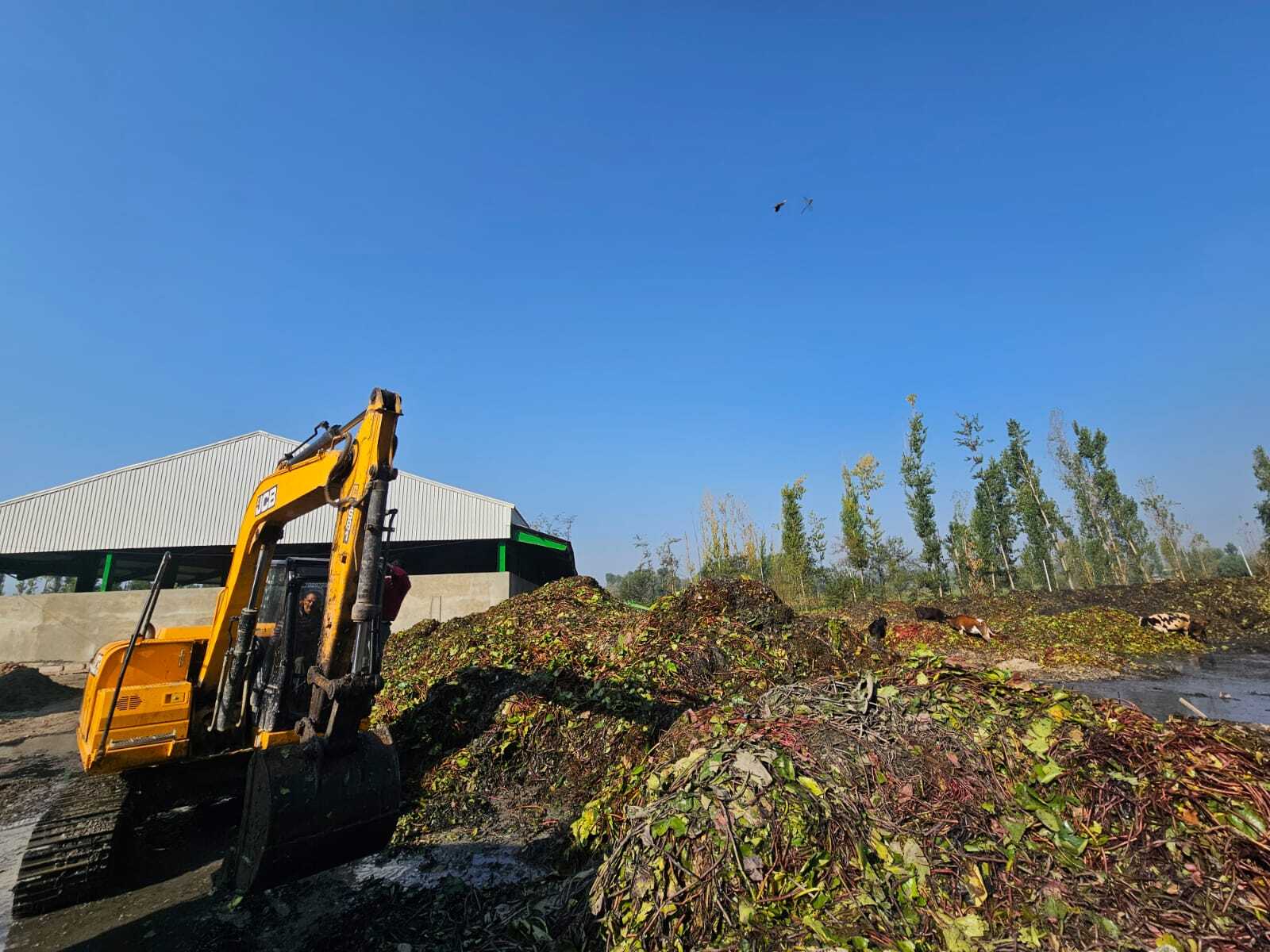 By 2018, Maninder proposed his solution to the Jammu and Kashmir government to tackle the lake weed issue in Dal Lake
By 2018, Maninder proposed his solution to the Jammu and Kashmir government to tackle the lake weed issue in Dal Lake
The breakthrough came in 2017, when CEF Group was empanelled with the National Agricultural Cooperative Marketing Federation of India (NAFED) as a technical and financial partner in a project to set up waste processing plants across the country.
By 2018, Maninder proposed his solution to the Jammu and Kashmir government, offering to tackle the lake weed issue in Dal Lake. With support from NAFED, the local government, and the Lake Conservation & Management Authority (LCMA), his vision began to take shape.
Initial challenges included convincing local communities, obtaining land near Dal Lake, securing necessary permissions, and navigating the complex Environmental Impact Assessment (EIA) process. It took nearly four years to secure the land and begin construction.
Giving lake weeds a second life
By 2022, his team had secured a 12-acre land near the lake and set up the machinery needed to convert lake weeds into organic manure. The project officially kicked off with the signing of an agreement between the LCMA, NAFED, and CEF Group.
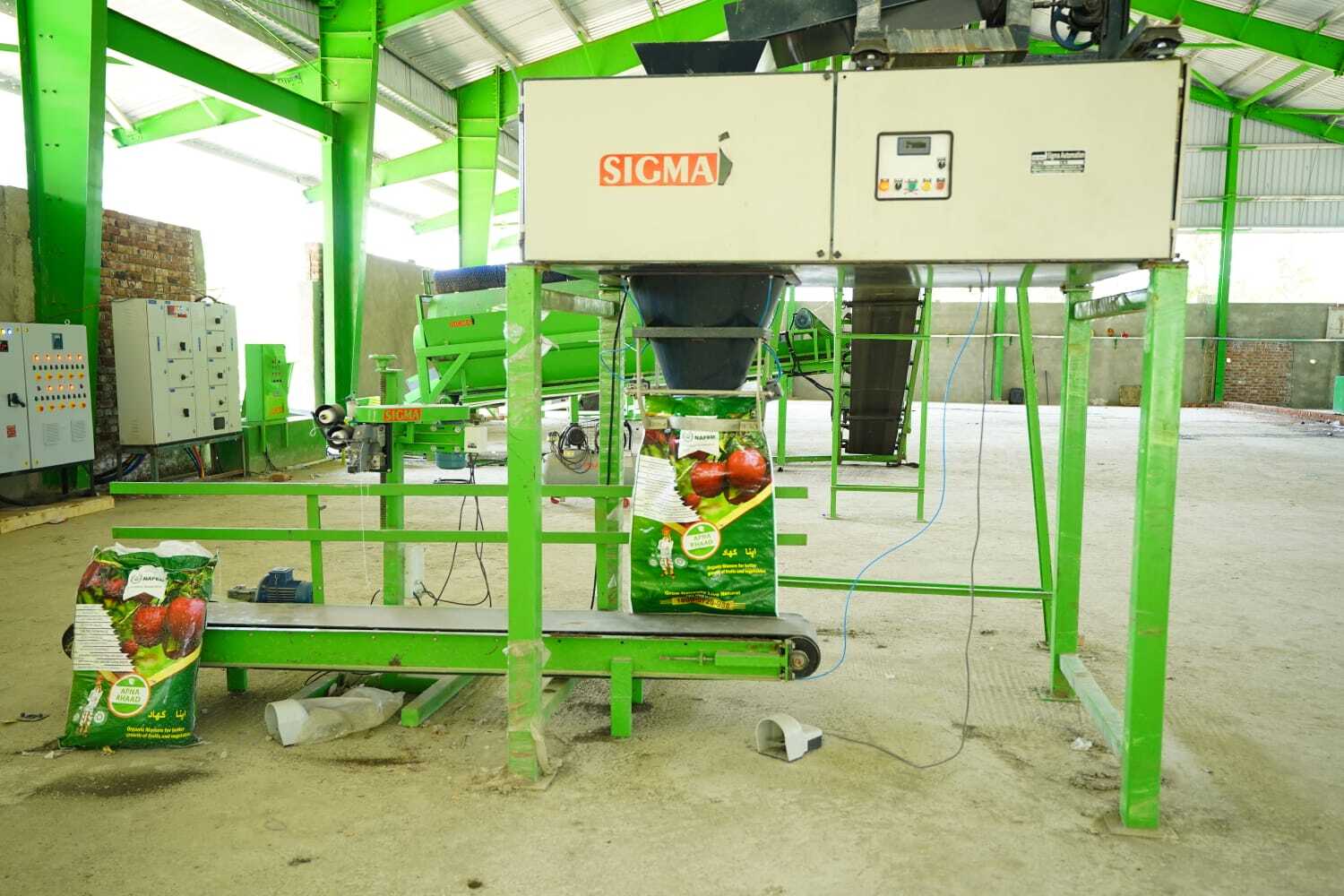 By 2022, Maninder had secured a 12-acre land near the lake and set up the machinery
By 2022, Maninder had secured a 12-acre land near the lake and set up the machinery
Reflecting on this collaboration, Mohammad Younis Malik, Vice Chairman of the J&K Lake Conservation and Management Authority, explains, “Since the authority’s establishment in 1997, one of the major challenges we have faced has been the effective management and disposal of waste, including solid, liquid, and biomass from the lake and its surrounding areas.”
He adds, “The accumulation of these waste materials has posed serious environmental threats. In response to this, we partnered with the CEF Group because they provided a tangible solution.”
In March 2024, after years of research, trials, and construction of the plant, the project was virtually inaugurated by Prime Minister Narendra Modi, Maninder says.
From lake weeds to organic manure
The process of transforming lake weeds into valuable organic manure is unerring. Lake weeds collected by LCMA’s authorised vendors are transported to the processing plant using 4-5 ton trucks. Approximately 21 trucks are deployed near the lake to carry out the task from April to December, before the lake starts freezing.
“These weeds are first weighed to maintain proper records before being unloaded in a designated area for processing,” the social entrepreneur explains.
The weeds are first dried in a dewatering plant to remove as much moisture as possible. After that, they go through a two-step shredding process that breaks them down into small pieces, each less than 4 mm in size.
“We produce higher-quality manure when it is finely shredded,” Maninder explains. The shredded material is then placed in windrows (3m wide, 90m long) for controlled composting over two to three weeks. Afterward, it is sun-dried to further reduce moisture. Bio-nutrients and organic enhancers are added to improve the manure’s NPK (Nitrogen, Phosphorus, and Potassium) levels.
After the composting process, the material is screened, refined into a powdered form, and packed in bags of various sizes for distribution. The entire process takes about 35–40 days from arrival to packaging.
The people behind the progress
“Our distribution network is one of the main reasons behind our success, and we are fortunate to have a group of over 300 dedicated and trusted partners,” he says. Leading the charge are five main distributors who manage regions across Kashmir with expertise and commitment.
These include Sheezan Trading Co, headed by Jowhar Wani, which covers the entire valley from Nowgam; Alhuda Enterprises, led by Khalidul Islam, which plays a vital role in Shopian; and Lucky Enterprises, under Muzamil Ahmad in Kulgam, which ensures a steady supply of manure to local farmers.
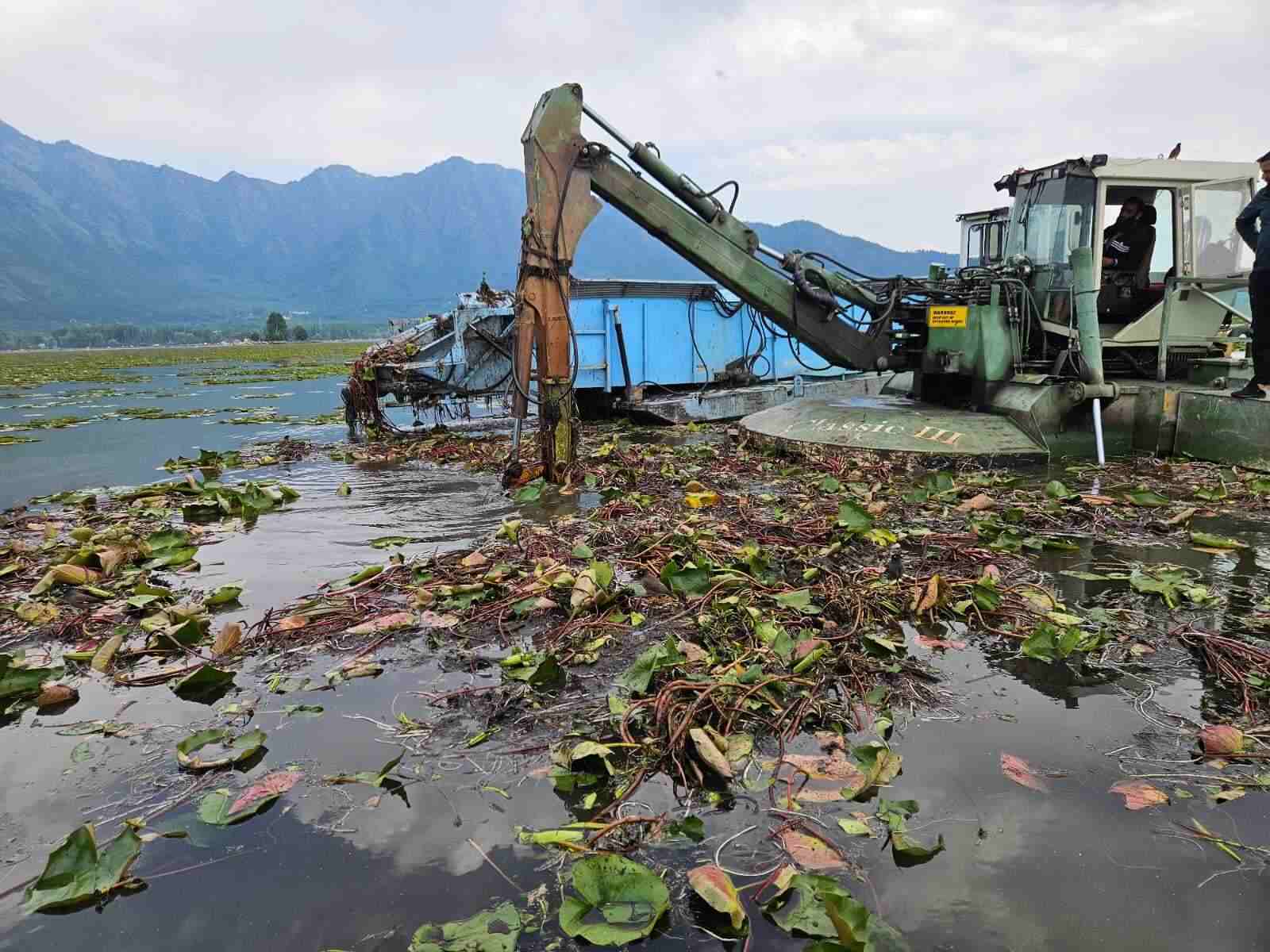 The social entrepreneur’s weed conversion project has had a positive impact on both the environment and local communities
The social entrepreneur’s weed conversion project has had a positive impact on both the environment and local communities
In the northern region, Asia Agro, managed by Nazir Ahmad Bhat, oversees areas like Baramulla, Bandipora, Budgam, and Kupwara. Finally, Himalaya Enterprises, under Noor Ulla in Pulwama, rounds out the strong distribution team.
“Each of these distributors brings local knowledge and dedication, helping us reach farmers with efficiency and care. Together, they form the backbone of our growth and success in Kashmir,” Maninder explains.
The social entrepreneur’s weed conversion project has had a positive impact on both the environment and local communities. By converting lake weeds into organic manure, his company has not only reduced the odour and waste piling up near Dal Lake but also prevented the lake from further environmental degradation.
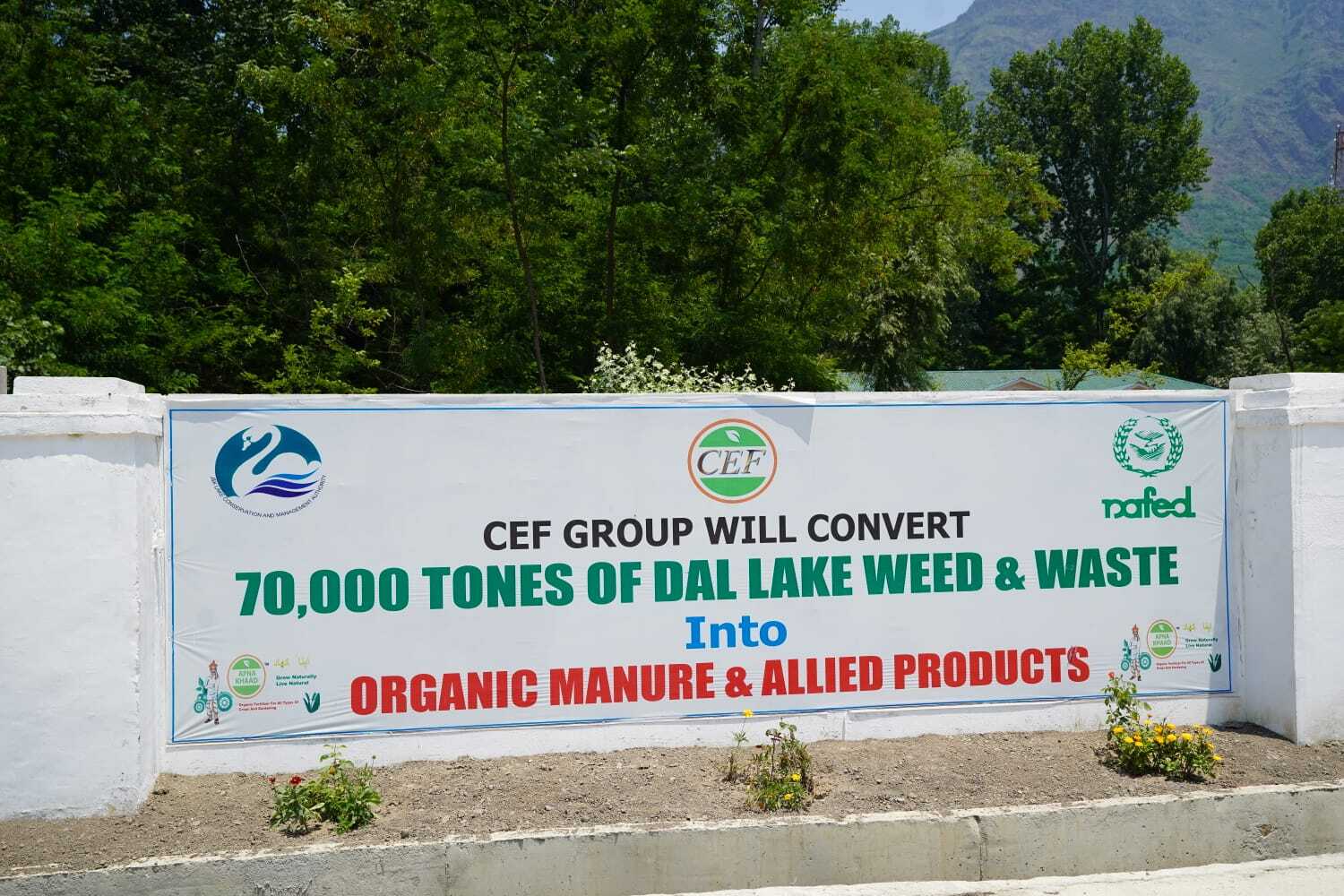 Between August and December 2024, the company received a total of 14,864 tonnes of lake weed
Between August and December 2024, the company received a total of 14,864 tonnes of lake weed
“The establishment of a waste processing plant under a Public-Private Partnership (PPP) model, which has been operational for the past year, has helped in managing the waste from the lake in an environmentally sustainable manner,” explains Younis Malik.
“By creating strong backward and forward linkages, we have ensured the plant’s smooth operation and scalability, which not only addresses the waste management issue in Dal Lake but also offers a replicable model for other lake conservation projects. The initiative has had a positive environmental impact by converting lake biomass into bio-manure, contributing to both conservation efforts and agricultural sustainability,” he adds.
Greener lakes, stronger communities
In terms of environmental impact, CEF Group has made strides in managing the excess lake weed. Between August and December 2024, they received a total of 14,864 tonnes of lake weed. Out of this, 4,131 tonnes were converted into organic manure, a process that has led to a reduction of approximately 2,891 tonnes of CO₂ emissions.
For perspective, converting just one tonne of lake weed into organic manure results in a CO2 savings of around 0.7 tonnes. “Our project is designed to process up to 70,000 tonnes of lake weed each year, which yields between 20,000 to 22,000 tonnes of organic manure. This large-scale effort is expected to lead to an annual reduction of around 50,000 tonnes of CO₂ emissions,” says Maninder
An important aspect of this process is the leachate treatment, which involves the water that is extracted from the lake weeds. “The water that comes out of the lake weeds is carefully treated to remove any harmful contaminants like heavy metals, organic pollutants, and other toxic substances, through our leachate treatment system,” he says.
“Once treated, this water is safely returned to the soil, ensuring that it nourishes the land without causing any negative environmental impact.”
This comprehensive approach not only helps manage the invasive lake weed problem but also contributes to sustainable agricultural practices by providing nutrient-rich organic manure while reducing carbon emissions and improving the health of the surrounding ecosystem.
Empowering the farmers of Kashmir
This conversion has also benefitted around 2,500 farmers in Kashmir so far, who now have access to organic manure at a lower price — Rs 12 per kg, compared to the Rs 16 per kg they were paying for chemical fertilisers brought in from other states like UP and Haryana.
“We have made an impact by enriching over 4,400 acres of land, improving soil health, and supporting sustainable agriculture practices,” explains the entrepreneur.
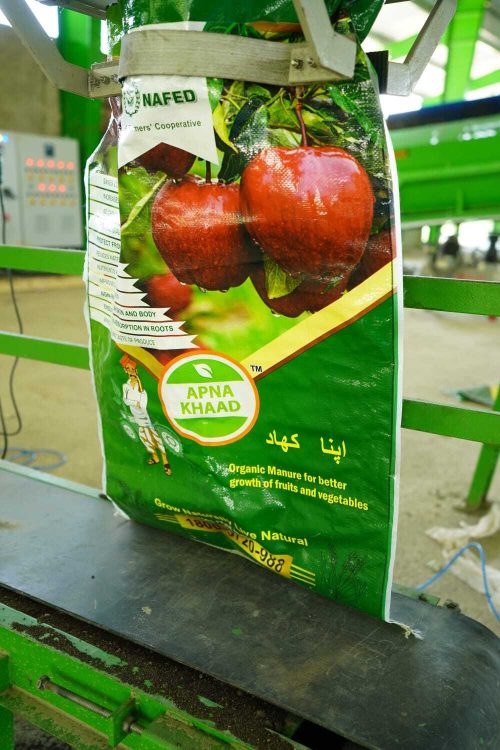 The organic manure has benefitted around 2,500 farmers in Kashmir so far
The organic manure has benefitted around 2,500 farmers in Kashmir so far
Sibir Hamdar, an apple farmer from the Shopian district, says, “For many years, I relied on chemical fertilisers, but their high cost and the gradual degradation of soil quality became a growing concern. As the expenses increased, it became difficult to maintain a good yield. However, since switching to organic manure provided by CEF Group, I have noticed a stark improvement in my orchard.”
Sibir continues, “This locally produced organic manure is not only more affordable but also rich in nutrients and completely natural. My apple trees are noticeably healthier, the quality of the fruit has improved, and the soil remains fertile without the need for harmful chemicals.”
But it’s not just the environment and farmers that have benefited. The project has created employment opportunities for the local community, with 24 people now working at the processing plant and hundreds of them helping collect weeds at the site.
Mohammed Adil, the site manager at CEF Group overseeing the scientific processing plant at CEF Srinagar Biofuel, explains, “CEF Group’s innovative waste processing plant has a capacity of 140 tonnes per day. By removing waste from Dal Lake, it directly improves water quality, restores biodiversity, and enhances the lake’s natural beauty. This has had a significant impact on reviving tourism and boosting local businesses.”
The initiative has also brought social benefits, creating over 1,500 employment opportunities, particularly for local youth. “Many of these workers assist in collecting lake weeds, while others contribute directly to the operation of the plant,” Adil adds.
‘It’s a win-win for all of us’
“The community’s response has been positive, even though they were initially hesitant regarding the odour and pollution,” Maninder says. “We have created jobs, improved the local environment, and provided farmers with affordable and rich manure. It’s a win-win for all of us,” he says.
Looking to the future, he aims to replicate this success in other Indian lakes — starting with Odisha and Rajasthan. His goal is to prevent lake weeds from tarnishing the beauty of other historic tourist destinations and to generate stable employment in multiple states by setting up similar processing plants.
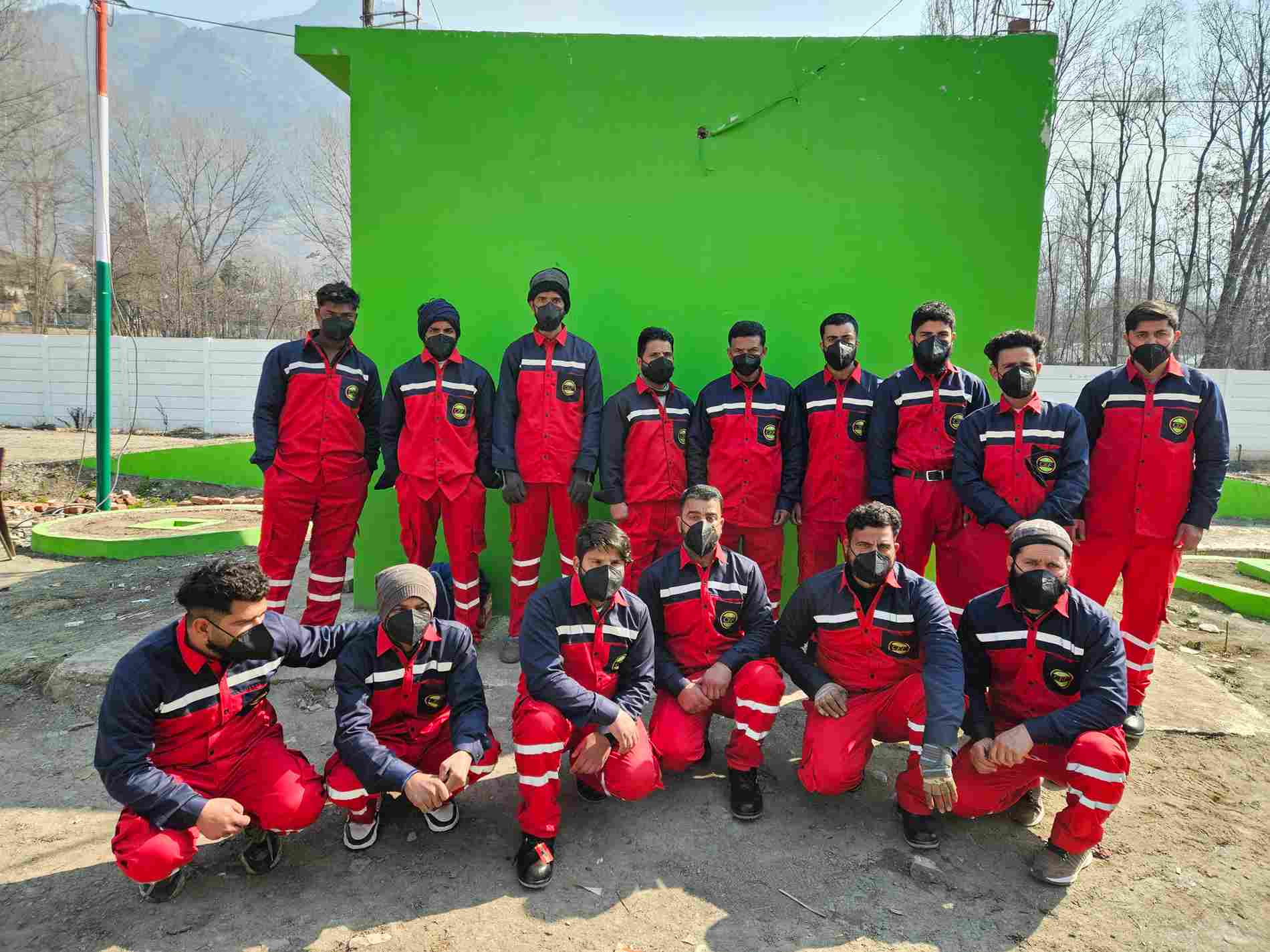 The initiative has created jobs, improved the local environment, and provided farmers with affordable and rich manure
The initiative has created jobs, improved the local environment, and provided farmers with affordable and rich manure
With a confident smile, he says, “Our goal is to scale this initiative across many more lakes in India because we do not want lake weeds to spoil the picture of these historic tourist destinations.”
Dal Lake may have sparked the idea, but for Maninder Singh and his team, this is just the beginning of a larger mission — a mission to clean India’s lakes, empower its communities, and change how we see waste.
Edited by Vidya Gowri; All pictures courtesy Maninder Singh
News